AP Government Foundational Documents
0.0(0)
Card Sorting
1/8
Last updated 3:34 AM on 2/9/23
Name | Mastery | Learn | Test | Matching | Spaced | Call with Kai |
|---|
No analytics yet
Send a link to your students to track their progress
9 Terms
1
New cards

* Weak central government, little powers given to Congress
* No executive or judicial branch
* Each state had 1 vote and amendments required unanimous approval
* No executive or judicial branch
* Each state had 1 vote and amendments required unanimous approval
Articles of Confederation
2
New cards
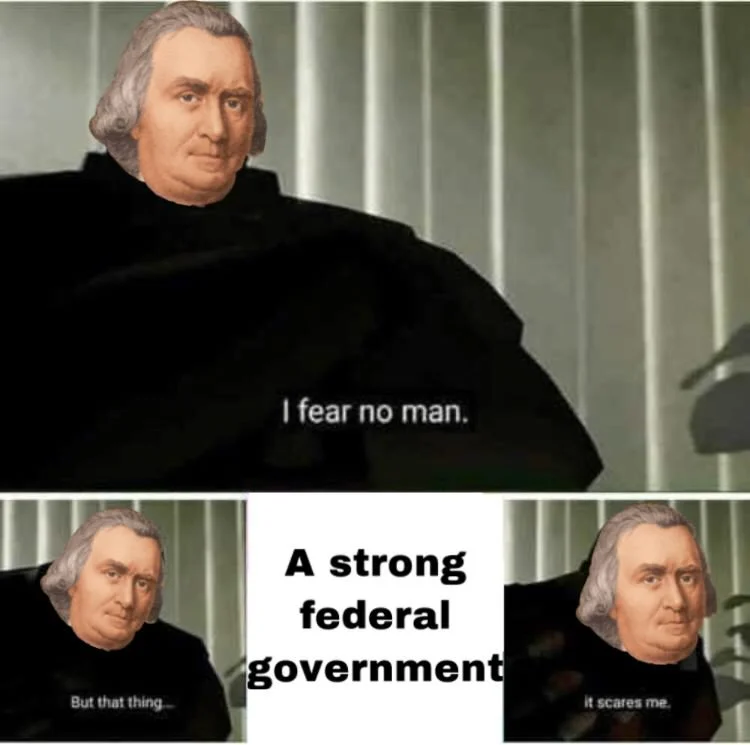
* The first Anti-Federalist document that argued against the drafting of the United States Constitution
* Written by Robert Yates
* States that…
* the Constitution would give too much power to the national government
* A large republic leads to tyranny
* A small republic is better to preserve personal liberties
* Written by Robert Yates
* States that…
* the Constitution would give too much power to the national government
* A large republic leads to tyranny
* A small republic is better to preserve personal liberties
Brutus #1
3
New cards

* The “law of the land”
* Outlines the structure of the government with three branches
* Creates a relationship between the national government and state governments
* This is called FEDERALISM
* Includes an amendment process which has allowed for 27 amendments with the first 10 being called the Bill of Rights
* Outlines the structure of the government with three branches
* Creates a relationship between the national government and state governments
* This is called FEDERALISM
* Includes an amendment process which has allowed for 27 amendments with the first 10 being called the Bill of Rights
Constitution of the United States
4
New cards
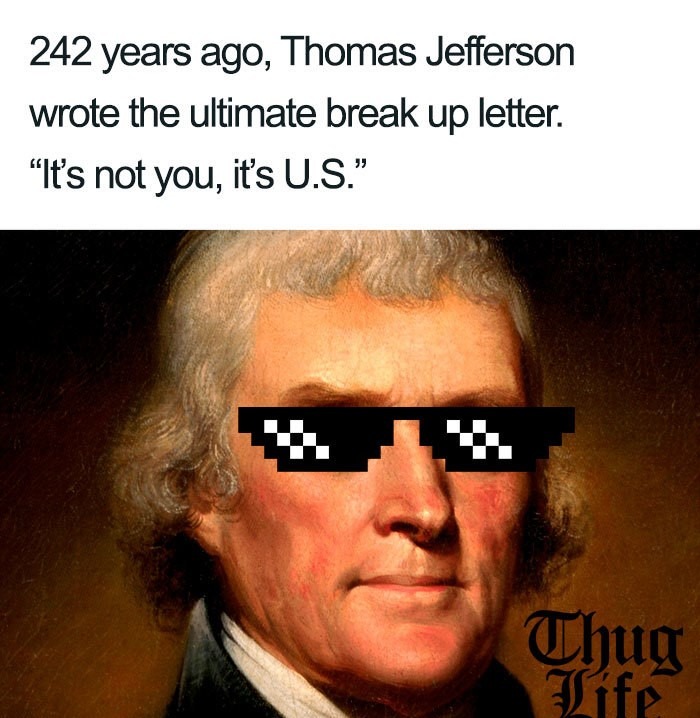
* Written by Thomas Jefferson
* Declared independence from Great Britain
* “All men are created equal…endowed by the Creator with certain unalienable Rights…among these are Life, Liberty, and the Pursuit of Happiness”
* Influenced by John Locke
* Social Contract theory, limited government, consent of the governed
* Declared independence from Great Britain
* “All men are created equal…endowed by the Creator with certain unalienable Rights…among these are Life, Liberty, and the Pursuit of Happiness”
* Influenced by John Locke
* Social Contract theory, limited government, consent of the governed
Declaration of Independence
5
New cards
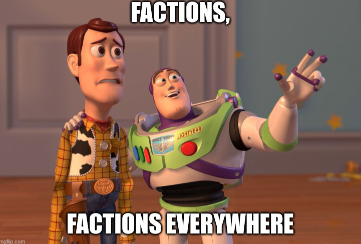
* Written by James Madison
* Argues that factions are inevitable
* Causes of factions cannot be removed, relief only to be sought as a means of controlling its effects
* A large government is the best form of government to address factions
* Argues that factions are inevitable
* Causes of factions cannot be removed, relief only to be sought as a means of controlling its effects
* A large government is the best form of government to address factions
Federalist #10
6
New cards
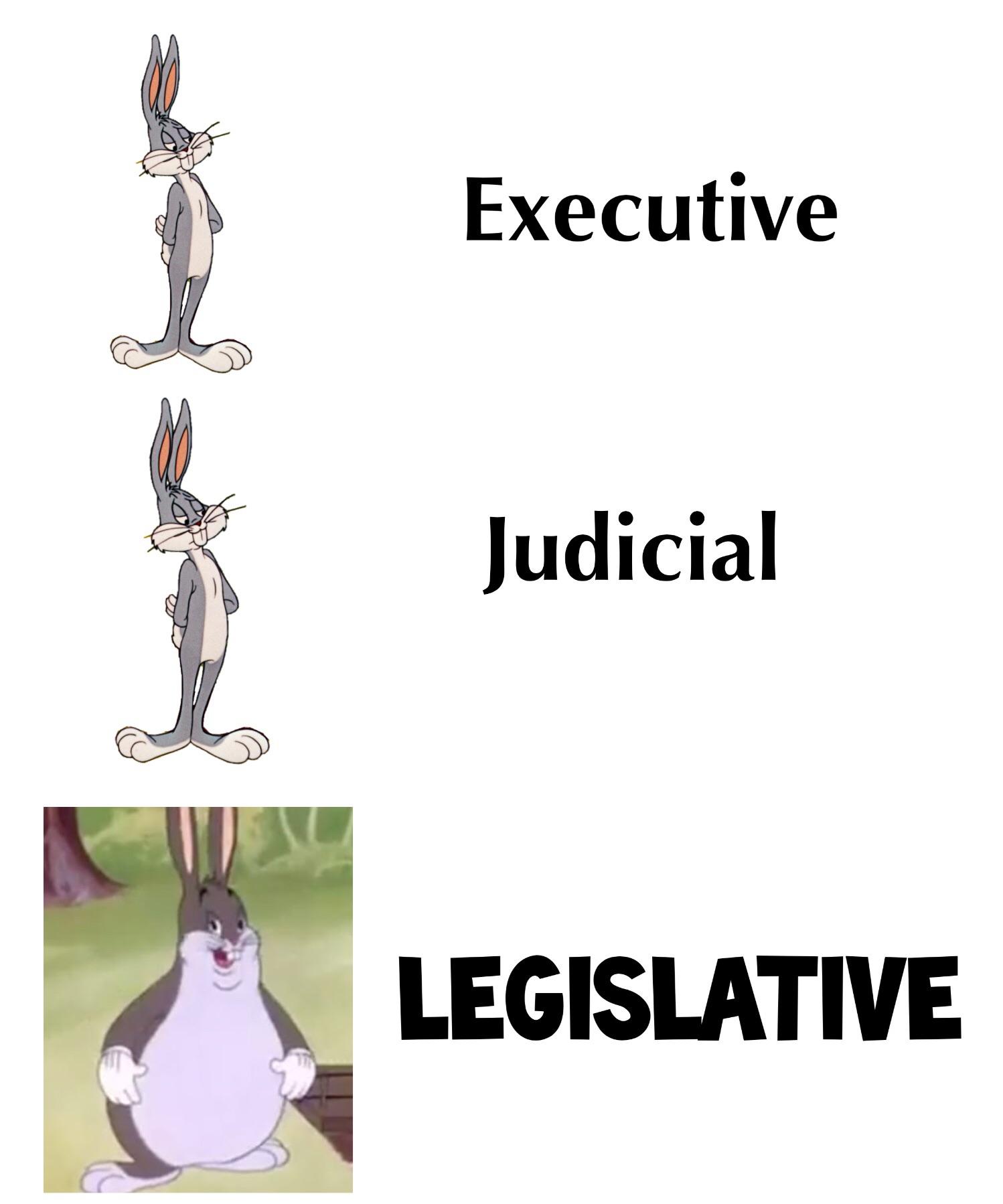
* Written by James Madison
* The Constitution divides power to keep power from becoming too centralized
* The legislative branch is the strongest but can be weakened by dividing congress, electing them differently and giving the executive the veto
* “If men were angels, no government would be necessary”
* The Constitution divides power to keep power from becoming too centralized
* The legislative branch is the strongest but can be weakened by dividing congress, electing them differently and giving the executive the veto
* “If men were angels, no government would be necessary”
Federalist #51
7
New cards

* Written by Alexander Hamilton
* Energy in the executive is essential
* A strong executive is needed. A feeble executive implies a feeble execution of the government
* Advocates for a single executive instead of any greater number
* Energy in the executive is essential
* A strong executive is needed. A feeble executive implies a feeble execution of the government
* Advocates for a single executive instead of any greater number
Federalist #70
8
New cards
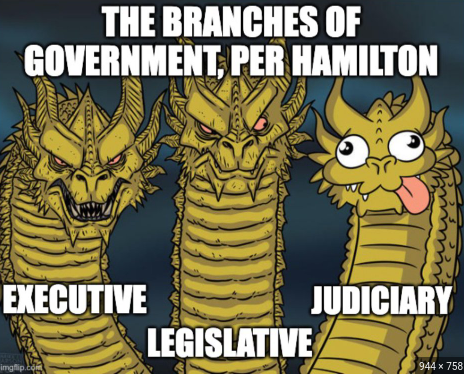
* Written by Alexander Hamilton
* The judiciary has the least capacity to injure the political rights of the Constitution
* If a law is in conflict with the Constitution, the latter must prevail and the interpretation of the laws falls to the judiciary
* Life tenure frees judges from political pressure
* The judiciary has the least capacity to injure the political rights of the Constitution
* If a law is in conflict with the Constitution, the latter must prevail and the interpretation of the laws falls to the judiciary
* Life tenure frees judges from political pressure
Federalist #78
9
New cards

* Written by Martin Luther King Jr.
* Non-violent direct action is the first step in the process that leads to policy change that advances civil rights
* Legal pressure like the Brown v Board case can serve as a catalyst for a social movement, in this case, civil rights
* Direct action by a social movement is the product of meticulous planning and strategy
* Non-violent direct action is the first step in the process that leads to policy change that advances civil rights
* Legal pressure like the Brown v Board case can serve as a catalyst for a social movement, in this case, civil rights
* Direct action by a social movement is the product of meticulous planning and strategy
Letter from a Birmingham Jail